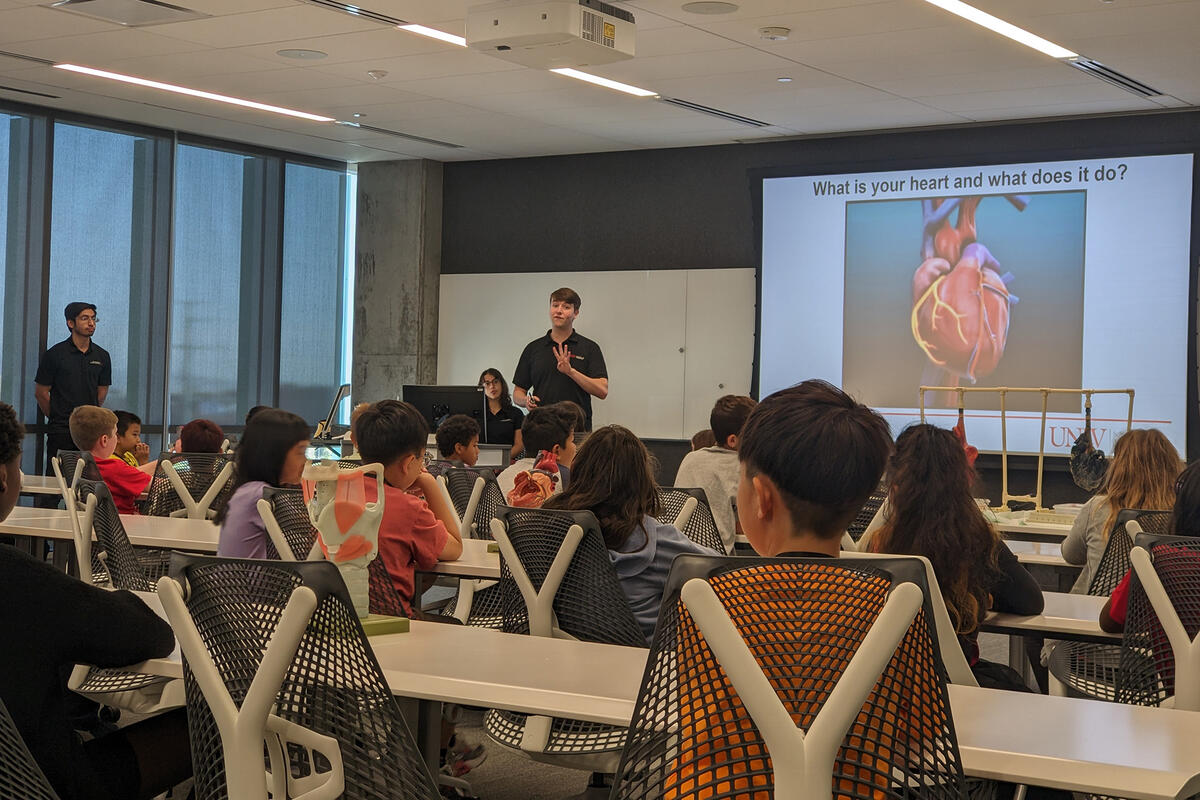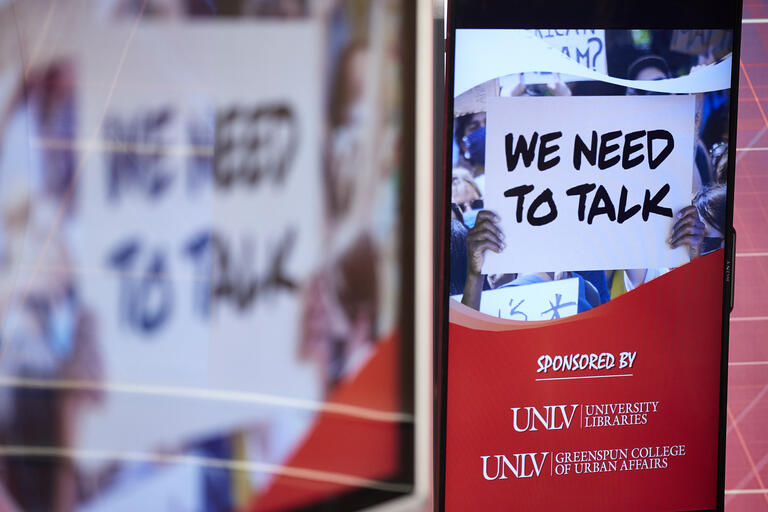One of the principles that the Kirk Kerkorian School of Medicine at UNLV emphasizes to its students, residents, and fellows is the importance of caring for the community. Being able to provide high-quality, patient-centered care starts with knowing your community and engaging with it.
For the school’s students, community service is integrated into their education and training from the very beginning.
“The medical students are ... required to do community service and engage with the community and that is something that is present throughout all four years,” says Jennifer Young, director of community engagement. “That’s part of our curriculum and that makes us unique. I think we're one of the few medical schools that have that longitudinal requirement.”
This involves volunteering at community centers and on projects at local schools and various organizations. Along with this, students participate in the UNLV Well Connect program. Previously known as UNLV CARES, the program began during the COVID-19 pandemic and involved making home deliveries of supplies and food to help people shelter in place and creating vaccine pop-up clinics and education spaces. Since then, UNLV Well Connect has transformed into a community resource connection program and has been incorporated into the curriculum.
“Our medical students, in the first phase, are all enrolled in this program. They serve as navigators and are assigned clients in the community, and they work with them remotely, so by text, email or phone call. They conduct interviews and find out what their [client’s] priorities are and work to connect them to those resources,” says Young.
Young believes that caring for the community so early in the students’ careers not only benefits the community, but it also helps with the development of the students’ skills.
“As they move into the clinical space, they've had a lot of time in the community. They have an understanding of community challenges, the resources, and the people and the folks they've worked with in the community – these are their future patients,” Young says.
As for the school’s resident physicians, most of their training consists of providing clinical care directly to the community. They also participate in various community service activities that range from providing care in community clinics or educating the community on health topics.
Pediatric residents are involved in Family 2 Family Connection, where they teach a pediatric topic every month in a group setting for children up to age five; the University Medical Center Southern Nevada (UMC) Healthy Living Institute, where residents participate as experts in pediatrics through their “Ask A Pediatrician” and “Daddy Boot Camp” classes for parents; and the Clark County School District (CCSD) Family Resource Center, where residents provide pediatric care that is open to all CCSD students.
Family medicine residents provide care at the UNLV Community Clinic located in the Volunteers in Medicine of Southern Nevada (VMSN) Ruffin Family Clinic and also participate in Equipo Academy’s career week, when residents teach high school students about careers in healthcare and discuss topics such as human anatomy, science, and clinical care.
Psychiatry residents provide care in community-based treatment centers such as Southern Nevada Adult Mental Health Services and Mojave Counseling while also providing lectures and information to various organizations for any topic requests related to psychiatry.
Young believes that community engagement is important for the training of medical students, residents, and fellows.
“Medicine is a profession that is always moving forward, but at the same time, reaching back to help others,” says Young. “Being a physician doesn't stop at the clinic door, and it doesn't stop once you've completed your training. [It’s] looking for ways to give back to the community [and] improve your community, regardless of the field you're in.”



